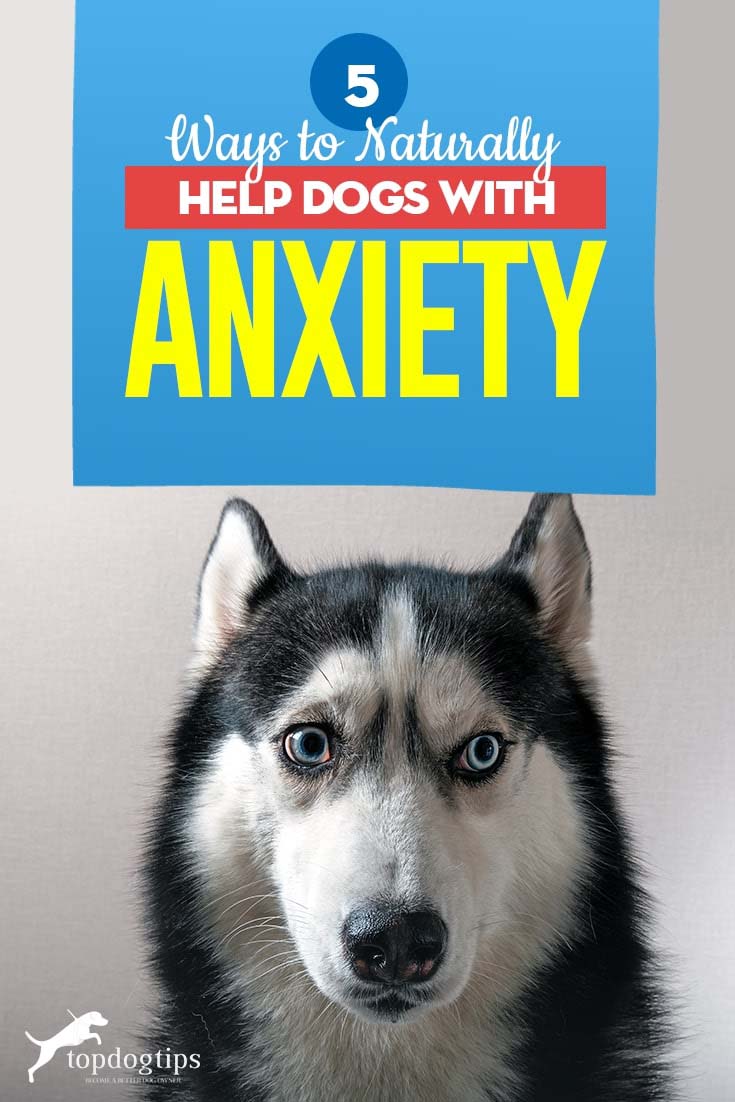It’s tough to deal with a dog that has severe anxiety issues but it happens even to the best of our pets. Thankfully, there are natural ways to manage this before you have to pick up medicine.
There are many reasons as to why dogs become anxious. Sometimes, it's part of a dog's behavior, personality, and training. In other cases, their anxiety might be triggered by their environment.
Dogs express their anxiety in different ways. They might bark excessively, or lick and groom themselves too much, or tremble and look fearful, or become destructive and aggressive towards other animals and people.
Some anxieties can be managed with further training and conditioning but other pet owners might turn to medication for a quick solution. However, drugs have side effects that might make the dog sick especially if the vet has prescribed for the dog to take this for over a long period of time.
Once they're off the meds, the dog might suffer from withdrawal symptoms just like humans. Below are natural remedies for treating your dog's anxiety.
1. Play Audiobooks or Music
 A 2016 study has shown that playing audiobooks helped dogs in shelters feel more calmer and well-rested. The auditory experience was also effective in easing anxiety in domestic pets, as the sound of the human voice brought a soothing relief.
A 2016 study has shown that playing audiobooks helped dogs in shelters feel more calmer and well-rested. The auditory experience was also effective in easing anxiety in domestic pets, as the sound of the human voice brought a soothing relief.
The best way is to get yourself some audiobooks on dogs to learn more that you would also enjoy listening to and play those, since your pup won't care about the content. It's a win-win-win situation.
But if you don’t like audiobooks for your dogs, you may also play music to help the dogs relax or go to sleep. According to a team of scientists researching the effects on music on dogs, Bob Marley songs and classical music in particular have a higher success rate of calming the dogs down.
2. Give Your Dog Herbs
You can make your own anxiety medication for pets using herbs like chamomile, valerian, and St. John's Wort. Soothing and completely natural, herbs for dogs are much safer than medications bought from drugstores. You may use and add the herbs in the dog's water or food, or you can put it directly in their mouth, according to Dogs Naturally Magazine.
3. Massage Your Pup
 Humans enjoy a good massage, so why can't dogs have the same? The long and slow strokes deliver a calming effect on the nerves. The benefits of massages in dogs have not been fully explored in studies but there are vets that recommend this method to pet owners, according to an article on New York Times.
Humans enjoy a good massage, so why can't dogs have the same? The long and slow strokes deliver a calming effect on the nerves. The benefits of massages in dogs have not been fully explored in studies but there are vets that recommend this method to pet owners, according to an article on New York Times.
There are pet owners who hire professionals but you can always use the DIY approach. There are tons of massage training videos on YouTube that you can easily follow. Check out Samantha's pet massage guide for several techniques you can apply.
4. More Exercise, More Playtime
Exercise gives the body a boost in humans because it stimulates the production of the feel-good hormone called serotonin in the brain. Apparently, this activity does the same for dogs, so the more time you let your pooch to run around and play, the better.
Exercise helps dispense your dog's pent-up energy so it reduces his anxiety and nervous tension. When a dog is tired from his physical workouts and playing, he'll like just sleep and rest at home all night. If he's too beat, there's no room to be stressed or anxious.
5. Use Pheromone Collars or Diffusers
Studies have shown that pheromone collars or diffusers are the most effective product-assisted way to reduce fear and anxiety in dogs. You can buy dog products that diffuse pheromones, which is a type of chemical that may influence a pet to stay calm and relaxed.
Products called Dog Appeasing Pheromones (DAP) are getting more and more popular with pet owners because more studies show them to be effective for calming dogs. You can buy this in pill form, as a collar diffuser, or as a spray version.
The pill form might be challenging to give to the dogs and some could develop an upset stomach because of it. So, collar diffusers seem like a better fit for dogs with sensitive tummies. The last few options you have are also calming collars and anxiety vests, both of which have also proven their effectiveness in reducing canine anxiety.
READ NEXT: How to Recognize and Help Dogs With Severe Anxiety














